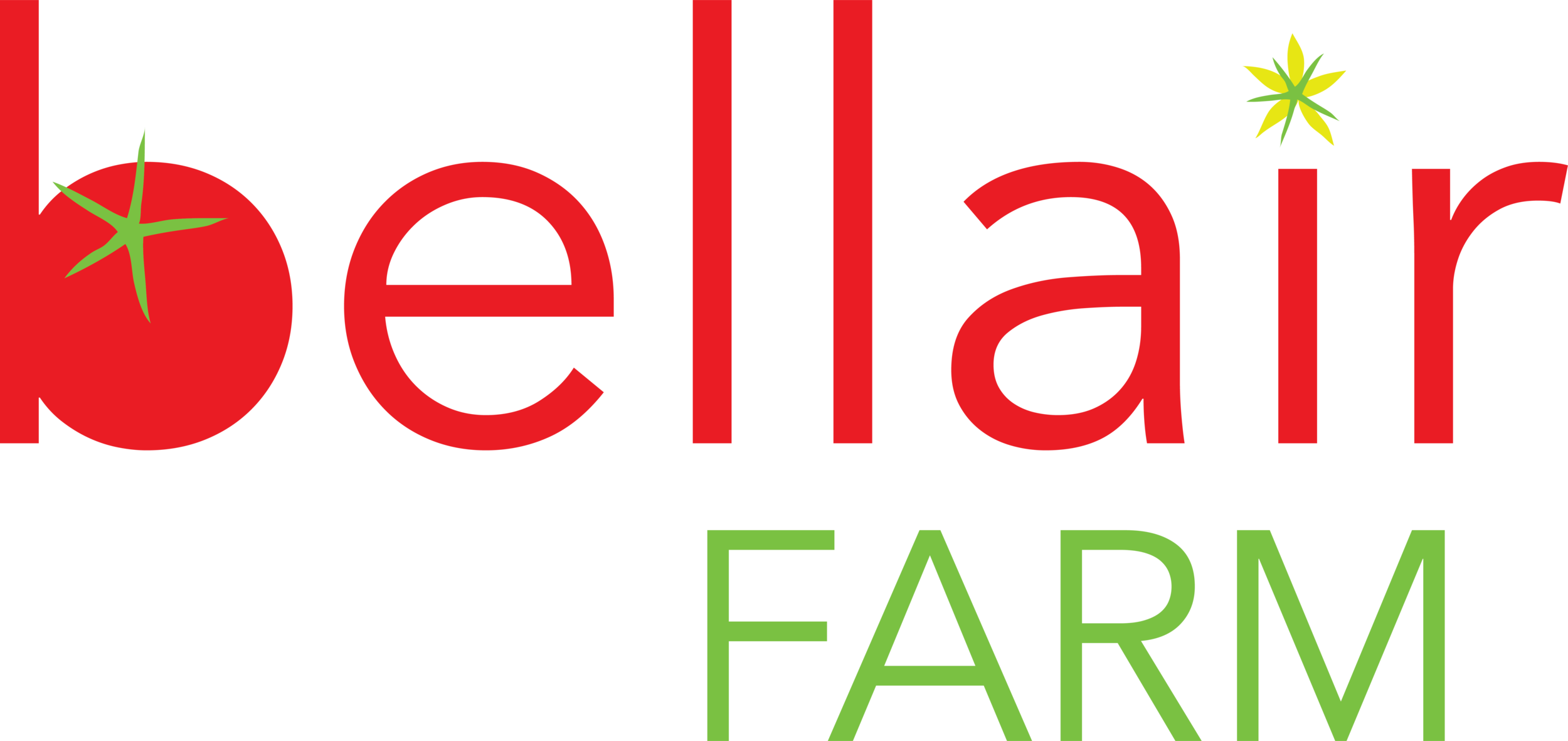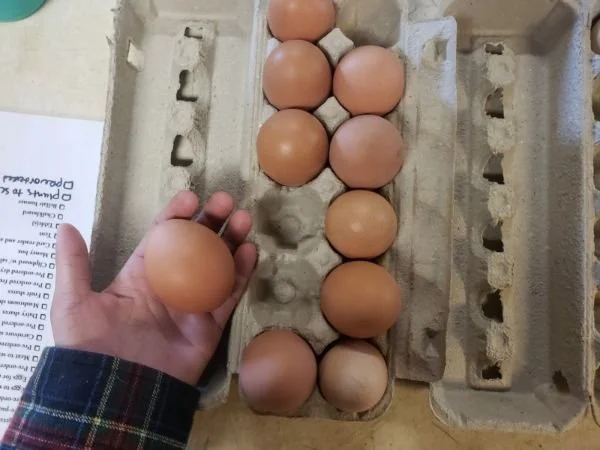What's Going on with Egg Supply?
Now that we’ve passed the Winter Solstice, the ‘new’ layer flock has really turned on. We’re getting approximately 600 eggs per day. Yes, that’s 50 dozen, 7 days a week!
No doubt you've been seeing news about the global egg shortage and possibly even seeing shortages or price increases on eggs at the grocery store. Despite this global trend, on our own farm, our egg supply has been on an exact-opposite trend. Our fall egg shortage gave way (post Winter Solstice) to a current local egg abundance! We'd love to provide eggs for your family (without surge pricing) and we'd also like to try to explain to you a little of what's going on to create these completely opposite conditions on a global vs local scale.
Why is there a global egg shortage?
So many reasons! Keep in mind, I'm no expert in global economics. However, as a farmer, it's clear to me how and why this is happening, and it's complicated! Here are some influencing factors:
Pastured poultry are potentially more exposed to wild birds (vectors for avian flu), but our guard dogs are excellent deterrents for both aerial predators and other birds.
Avian Flu outbreaks -- this is a direct cause and the main reason you'll see on the news. When avian flu impacts a flock, it's mandatory to report it to the federal government and they will visit the operation to ensure culling is carried out fully. When there's an outbreak, that farmer will lose their entire flock, and it takes at least 7 months to be able to replace that flock with a new batch of layers raised from chicks. These outbreaks are hitting in winter because of migratory patterns of wild birds, which are the vectors of this disease, and also for the same reason fall/winter are "flu season" for us!
Investor cold feet -- as with many global markets, a small shift might have ripple effects or make investors get "jumpy." This is where I'm outside of my expertise, but we've all witnessed this phenomenon occur. The Avian Flu itself is having an effect, but it's being exacerbated by the economics of global investing.
Natural winter supply/demand cycles (in the northern hemisphere) -- Birds lay fewer eggs in the winter months, even indoor flocks with electric light supplementation. Winter also coincides with western cultural traditions of lots of home baking and increased egg use during the "holiday season." We've seen this play out on a small scale with our own yearly cycle time and again. Of course, for half of the globe it's not winter right now, so this is only part of the explanation.
Why is there a local egg abundance?
There's really one answer here and it's that our new flock of layers has finally begun producing! We received this flock as pullets ("teenage" hens) in October and have been patiently waiting for them ever since. They took their sweet time, and even after installing an expensive new light array (to trick them into believing it's not the dead of winter), they were shy to get started. However, like clockwork just after the winter solstice, as the days began to get longer, they really "turned it on." We keep our flocks for two years, and their first spring with us will always be the most productive season. We are entering that boom time!
As for the Avian Flu and our farm, of course there is risk that it could occur here as well. We are not magically immune and in fact, compared to flocks raised 100% indoors, we are actually at higher risk as there's more chance for contact from wild bird droppings. We take this risk seriously and are doing all we can to mitigate it, which includes: worker training and biosecurity protocols (like hand washing, clothing changes etc), keeping visitors away, keeping our pullet flock in a barn for winter (not fully enclosed, but covered, so provides great protection), and last but not least our wonderful guard dogs who keep 90% of wild birds away!
Our commitment to you: transparency and no price gouging.
We did it last winter and we'll do it this winter. While you may see eggs in the grocery store and even at small local egg vendors surging their prices, that's not what you'll see from us. We know the long game is more valuable than the short term money grab. We hope you'll see this commitment from us and keep it in mind as you source your food for your family through this global shortage and beyond. We've seen customers come and go through pandemics and egg shortages and the like. Regular customers -- we notice! We love you and are grateful for your business. And of course, we're always excited to see new faces. If you or anyone you know needs eggs, you know where to come!
With these “roll away” nesting boxes, hens lay eggs inside and the eggs immediately roll down into a covered collection space. This makes it so much easier for our crew to collect eggs and it keeps the eggs a lot cleaner.
Here's a helpful guide we made to help new crew distinguish between pullet eggs and regular!
Bellair Egg FAQs
Why type of laying hen does Bellair Farm have?
We have "Golden Comet" chickens, which are a cross between Rhode Island Red and White Leghorn chickens. The former is the backyard standard and the latter the industry standard. The Golden Comet is the perfect mix of foraging/smarts of the RIR with the docile and heavy laying of the WL.
How often do you collect eggs and how many do you get?
We collect our hens' eggs daily and get over 50 dozen per day in peak season. A chicken lays an average of an egg a day during peak production and less than that in off-peak.
What is a pullet egg?
A pullet is a young chicken who hasn't started or has just started to lay eggs. A pullet egg is an egg laid by a pullet and it is noticeably smaller than a chicken egg.
What determines egg color and is there a difference?
The breed of chicken determines the color of the egg. There's no taste or nutritional difference based on egg color alone. Differences like that have to do with diet and lifestyle for the hens.
Does Bellair move their chickens?
Yes! We do "little moves" where we pull the coops forward in the same fence area at least once a week and larger moves where we move the whole fence for another bout of mini moves. The chickens stay close to the coop, so when you move the coop, you move the chickens! During the winter, we move the hens into a big open barn space — it’s more protected and comfortable for them, but they still have plenty of space and fresh air.
Will the chickens be by the barn this year?
We keep our laying flock under a pole barn for winter but we move them down into our production fields for the summer. We utilize the manure to improve our fields, and of course, we keep tight track of application dates for food safety reasons.
Do you ever sell your hens?
Yes, occasionally. The time of year to look out for that is winter, usually November-January.
What food do your chickens eat?
They eat a non-GMO feed that we get from Sunrise Farms in Stuart's Draft, VA. The feed is a mix of corn, soy, other grains, and a ton of essential minerals. We also provide our chickens with 3 other essential items: oyster shell for calcium, grit for digestions, and fresh pasture to supplement their diet. Sometimes folks ask about grass-fed chicken or grain-free chicken and that's not really a thing. You might be able to raise a chicken without feeding it grain in a backyard setting, but we could never keep our flock healthy that way. They need their grains! And, lest we forget, grass seed is essentially a "grain" as well.
Do you wash your eggs?
Yes, we do, by hand. We use a special soap designed for the job.
Do you have to refrigerate eggs?
Once they are washed, yes, technically. The washing removes a protective membrane. So why do we wash? because poop is gross, that's why! For just a few birds, you can get away with not washing, but nobody wants a poopy egg.
How long do eggs last?
If they are stored properly in refrigeration, they will last for 4 months or even longer! We always sell our eggs within a few weeks of collection, so it is pretty much impossible for your eggs to go bad before you're eaten them. That being said, if an egg is bad, it's BAD, and you know about it! This is usually caused by micro-fractures in the shell that weren't apparent to us. If you ever get bad eggs (especially if you get a couple or if you're sure the egg wasn't cracked), we wanna know right away!
Can we re-use the cartons?
Not to put new eggs in, according to VDACS regulations. We'll take the cartons back to use for crew eggs and to start woodstove fires with, if you want to give them to us for that purpose.
Some eggs are just too big! When the carton can't close on them, we set these aside and a crew member will usually take them.





